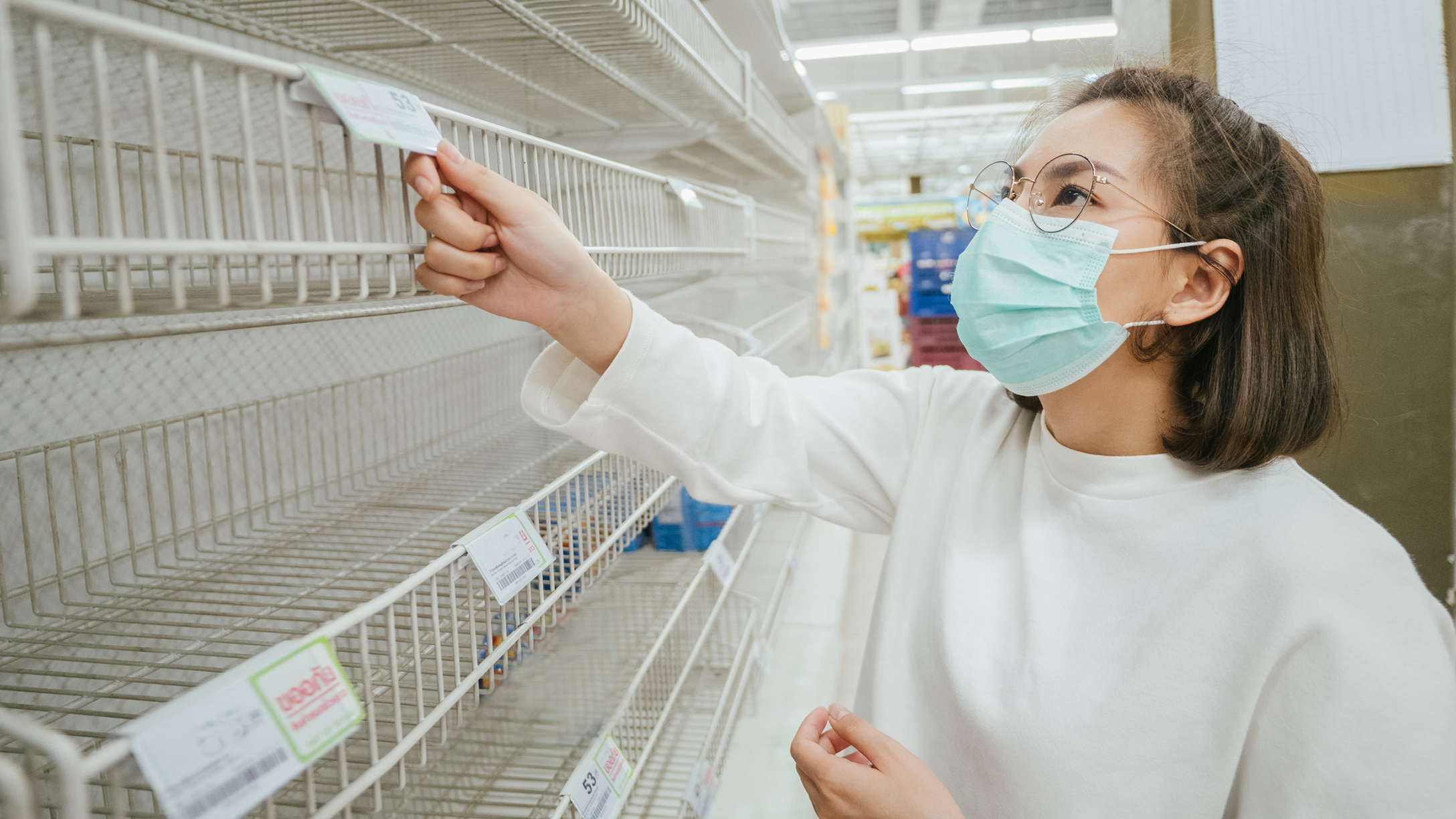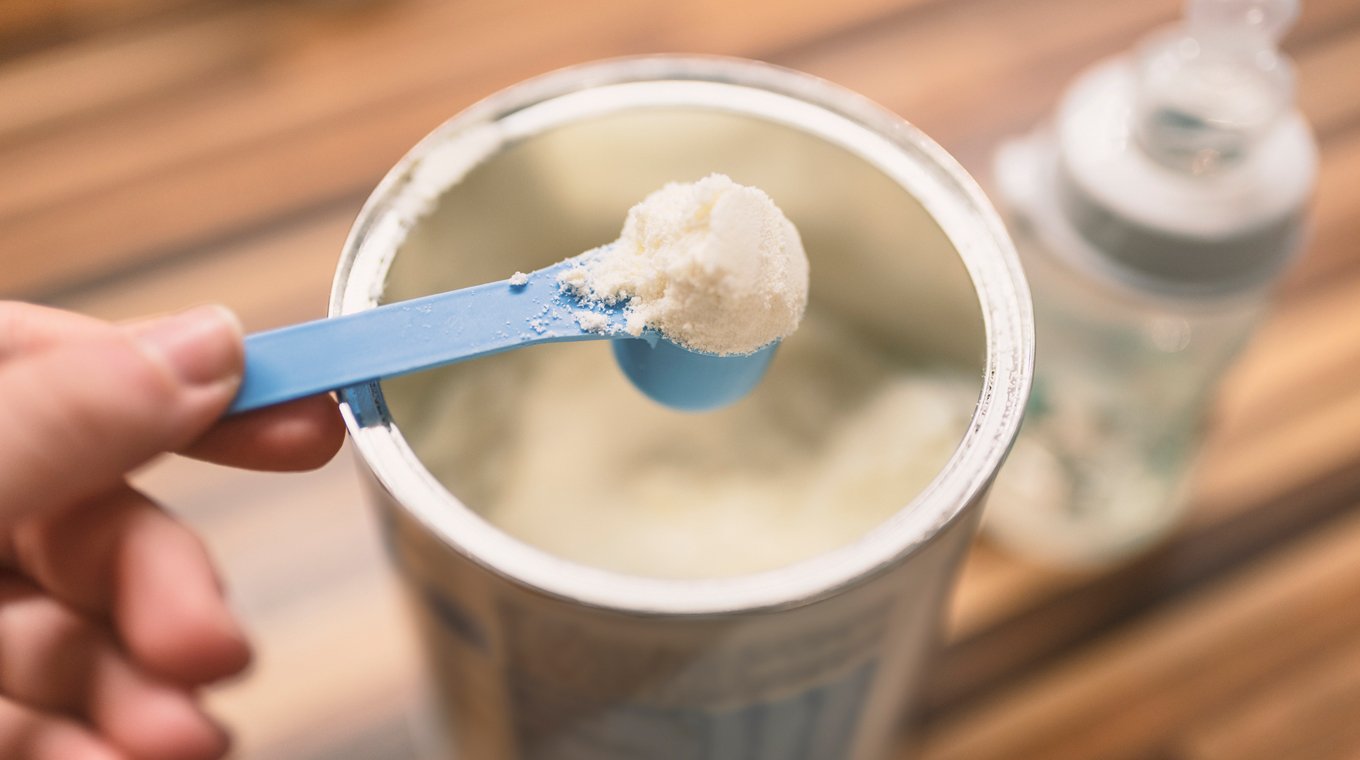
In this article
If you haven’t heard, parents everywhere are at their wit’s end with worry about how they’re going to keep their formula-fed babies full and healthy. For the past four months, parents have been going to every grocery store, pharmacy, and just about everywhere in-between to try and find formula. And more often than not, they haven’t been having a lot of luck.
What can parents do to get through this crisis? At the end of the day, all you want is your babies fed and well. So, here are a few tips on getting through the baby formula shortage; what to do if you’re encountering empty shelves and most importantly what not to do when considering alternatives.
Why the baby formula shortage is happening

Not only has the pandemic thrown a huge wrench into the supply chain, but the U.S. imports almost no infant formula from other countries. Additionally, earlier this year, Abbott Laboratories in Michigan — a major player in the production of popular formula brands — closed down.
And because a few firms dominate the infant formula industry in the U.S., this closure caused a huge problem. “They’re concentrating production into a few, very large plants, but that creates a lot of risk,” Claire Kelloway of the Open Markets Institute told NPR. “A huge part of the crisis we’re seeing now is from the closure of one plant.”
Even though President Biden has invoked the Defense Production Act, which will force manufacturers to keep formula and its ingredients front and center, it’s still going to take time.
What can you substitute for baby formula?

What should you do if you can’t find your usual formula? For some babies, simply switching brands or types of formula is the solution, but for many who have allergies and intolerances, it hasn’t been that simple. Keep in mind that the following substitutes for baby formulas should never be started until first consulting with your pediatrician.
Consult with your pediatrician
Before taking any action, be sure to give your pediatrician’s office a call. Not only might they have spare samples of your baby’s formula, but they can tell you what you can safely substitute for baby formula. With a million-and-two different recommendations and home remedies circulating the internet, it’s hard to know what is safe and what isn’t. It’s also essential to take into account that not every baby’s nutritional needs are the same.
Keep in touch with mom groups online
Nothing bands moms together like a common crisis. Because so many parents are being impacted by the formula shortage, many online mom groups are banding together and helping families find extra formula. “I try to go around and take pictures of places that sell formula, what their shelves look like, and we encourage others to do the same and kind of share what they find,” Maryland mom Gina Dolezar told WBAL TV.
Donor milk from milk banks
Depending on how sensitive your baby’s digestion is, making the switch to donor breast milk temporarily might be an option. But before you go and grab some from your sister’s-neighbor’s-best-friend Linda, talk with your pediatrician about the safest place to find donor milk. Just because one mom’s breast milk is right for her baby, doesn’t mean it will be right for yours. So give yourself peace of mind by going to a provider that ensures the milk is tested and safe.
More solid foods (for babies over 6 months old)
If your baby is on the older side of 6 months or has already had solid foods and purees introduced to their diet, giving them a little more solid food to compensate for less formula is an option.
Baby formula shortage: What not to do

All you want to do is make sure your baby doesn’t go hungry. While it can be tempting to try different suggestions you read online, or from well-meaning people, there are a few things you should absolutely not do.
Do not dilute formula
With different recipes, sometimes adding a little water can make the ingredients go further without compromising too much, but the same is absolutely not true when it comes to your baby’s formula. Babies’ systems are not fully developed enough to process the extra water, which can throw off their electrolyte balance and be very dangerous.
Don’t make your own formula
“Homemade formula is very, very dangerous, and the reason for that is because it is so easy for the electrolytes to be incorrect and that can cause babies to get very sick — vomiting, diarrhea, dehydration,” pediatrician Katherine Williamson of the American Academy of Pediatrics told The Washington Post. So while it might be tempting to try out this home remedy during this shortage, you absolutely should not do this.
Don’t use formula that is not regulated by the FDA
With the shortage feeling overwhelming for parents, it can be tempting to get your hands on any of the formula you can find online. But beware buying directly from other countries or third-party vendors that are not regulated by the FDA.
Don’t ignore allergy risks
Many parents are turning to cow’s milk, plant-based milk, or other substitutes. Unfortunately, they’re also encountering severe allergic reactions in their babies. Before making any substitutions to your baby’s nutrition, consult with your pediatrician to determine the best route for your family.




